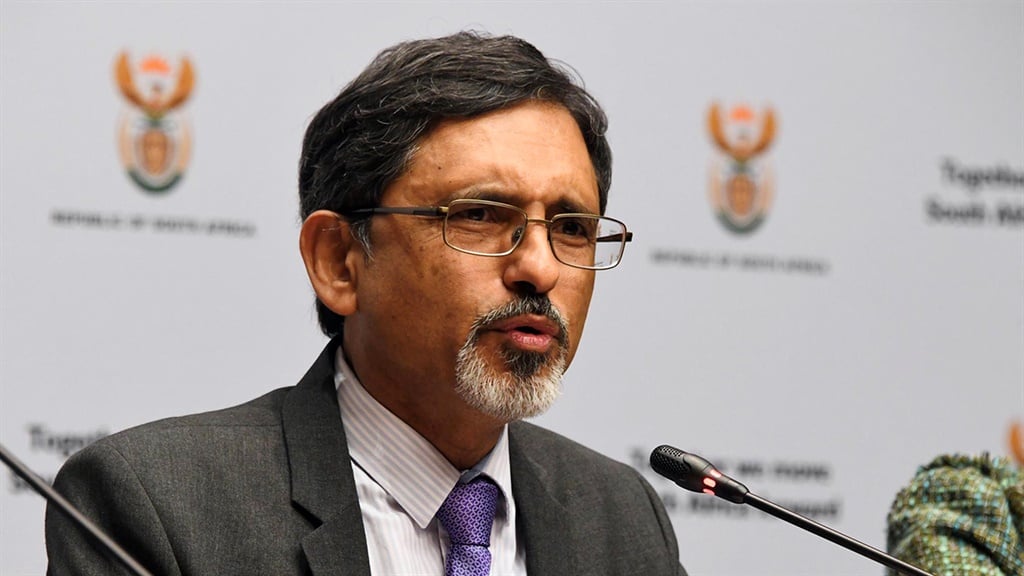
- Coca-Cola Beverages South Africa and the Department of Trade, Industry and Competition on Friday announced a new B-BBEE scheme at the company.
- The scheme, effective of May 2021, will see workers increase their ownership in the company and have board representation.
- Trade, Industry and Competition Minister Ebrahim Patel has encouraged other companies to follow the same route to establish more inclusive firms.
Coca-Cola Beverages South Africa will launch a B-BBEE ownership scheme which will see workers increase their ownership in the company and have board representation, a move which Trade, Industry and Competition Minister Ebrahim Patel said is at the "heart" of establishing more inclusive firms.
During a briefing on Friday afternoon, Patel, joined by Coca-Cola Beverages South Africa (CCBSA) managing director Velaphi Ratshefola, shared details of the scheme, which had been the result of a merger between three bottling plants to a single operation. The scheme is effective from May 2021.
The Competition Tribunal on Thursday had granted CCBSA variations to conditions imposed on the mergers. CCBSA had previously applied for the variations to the conditions relating to mergers in 2016 and 2017, the tribunal said in a separate statement.
The agreement is such that CCBSA will increase B-BBEE ownership to a target of 20%, building from the existing worker equity scheme of 5%. Workers will also have two seats on the CCBSA board, said Ratshefola.
The agreement also includes measures to bolster localisation and procurement from black-owned businesses. Efforts will also be made to transfer technical skills to empower workers, Ratshefola added. Particularly, CCBSA has committed to direct R80 million every year for the next three years towards local spend, said Ratshefola.
Patel noted this was one of the largest worker ownership schemes in the country, with 15% equity held by an 8 000-strong workforce, covering both blue-collar and white-collar employees. He said with worker participation on the board it would foster greater partnership and cooperation whereby workers can bring their insights in the area of corporate governance. This model was successful in Germany – where workers served on the boards of companies allowing rewards to be "shared by all", said Patel.
CCBSA has also committed to funding the training of workers with respect to their rights and responsibilities as owners of equity in the company. Government will work with the company and unions to make sure the training is "effective and appropriate", said Patel.
Procuring from black sugar farmers
As for the localisation measures, in line with the sugar industry master plan – CCBSA, among other industrial users and retailers, committed to increase the sourcing of sugar from black local farmers from 80% this year to 95% by 2023, Patel said.
Coca-Cola will also make available R240 million over a three-year period in efforts to improve local procurement. "It can be used to bring expertise and technical skills to help greater localisation in the food sector, in clothing, in consumer goods, in machinery and many other sectors," said Patel.
"These are important steps in our efforts to create an economy that belongs to all, an economy that all South Africans feel there is space for them. It is a great example of what companies can do, we look forward to others following the lead, and that this year can be a be a year to deepen the involvement of workers in boards of companies and to own shares in companies," he said.
Responding to question on why some companies may be reluctant to have worker representation on boards, Patel said it is a challenge being discussed with corporate South Africa – as was seen in Germany after World War 2, where part of the success of its rebuilding was linked to partnerships between business and labour. "Crises trigger these things, everybody, whether government, or unions – people have comfort zones," said Patel. He added that it is important to realise doing things the way they have always been done result in the outcomes we have always had.
As to why the shifts in board representation has not happened in South Africa is possibly because policymakers did not give importance to it in the past and corporates had not seen the opportunities of implementing this, Patel said.
"The equity and board membership proposals are at the heart of building an inclusive firm."
*This article was updated at 20:00 on 5 February 2021 to correctly reflect that workers would own 15% equity in the company. An earlier version stated 50%.




 Publications
Publications
 Partners
Partners












